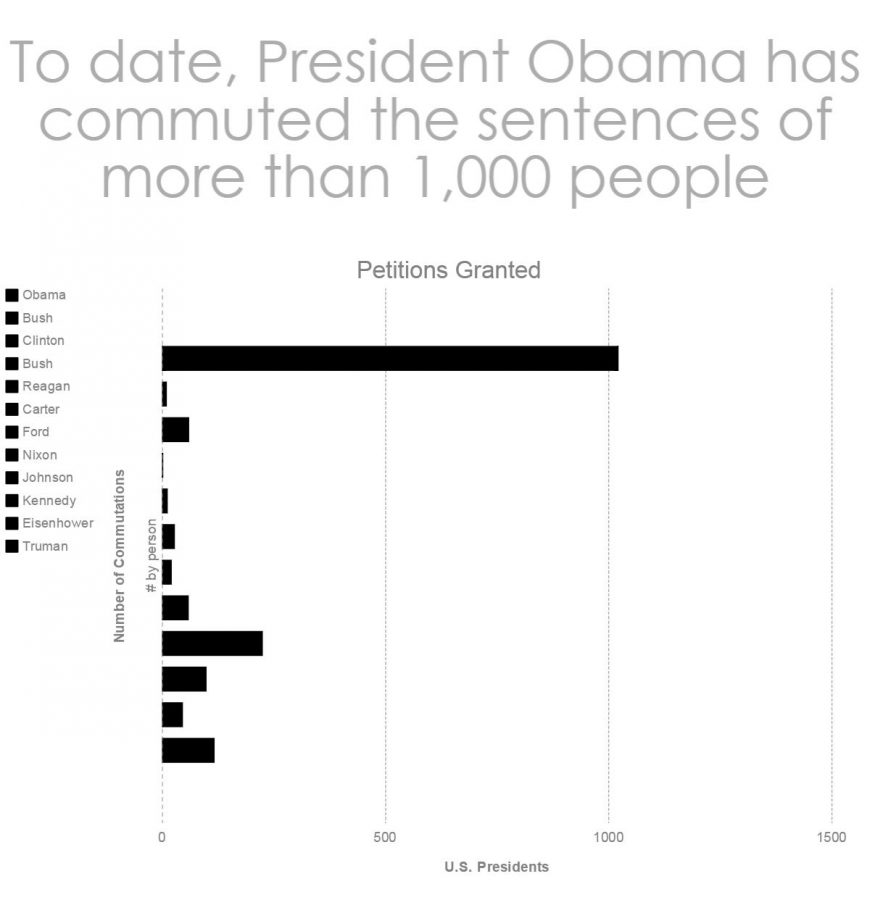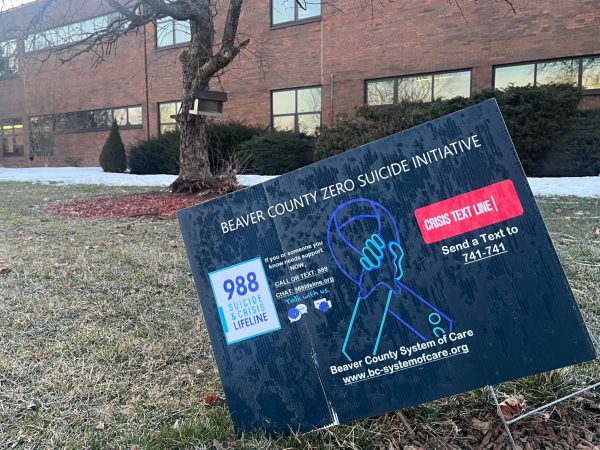Record-breaking clemency
Obama commutes more federal prisoners than all of his predecessors
In August, President Barack Obama broke the record for the highest number of commutations. Obama began this year with banning solitary confinement for juvenile offenders in federal prisons on Jan. 25.
With over 2.2 million people incarcerated in the criminal justice system, the United States makes up nearly 25 percent of the world’s prison population.
Solitary confinement “is not going to make us safer,” Obama said in a speech to members of the National Association for the Advancement of Colored People in July 2015. Just in the United States, the current estimate of incarcerated prisoners held in solitary confinement is from 80,000 to 100,000.
Studies have found that prisoners in solitary confinement are susceptible to psychological damage such as high rates of anxiety, nervousness, obsessive ruminations, anger, violent fantasies, nightmares and restless sleep. These mental behaviors are stemmed from the harsh conditions of prisoners spending 23 hours or more each day completely alone.
Due to changes in rules, federal prisoners can spend up to 60 days in isolation for the first offense, rather than the previous maximum of 365 days.
Obama, determined to give federal prisoners what he believes as fair sentences, has made progress granting clemency to inmates. To date, he has granted 70 pardons and 1,023 commutations—342 of them were serving life sentences.
As defined by the U.S. Department of Justice, a commutation “reduces a sentence, either totally or partially, that is then being served, but it does not change the fact of conviction, imply innocence or remove civil disabilities that apply to the convicted person as a result of the criminal conviction.” Though similar, a pardon “is an expression of the president’s forgiveness and ordinarily is granted in recognition of the applicant’s acceptance of responsibility for the crime and established good conduct for a significant period of time after conviction or completion of sentence.”
Criminals who are serving a life sentence will not necessarily be in jail for the remainder of their lives. In some cases, the sentence will be preceded by an amount of years. For example, a sentence of 25 years to life means that the criminal will be eligible for parole once he or she has served 25 years. Depending on their behavior in prison and the nature of their conviction, they will be granted parole; however, the severity of the crime committed could mean that the criminal will not be offered the chance of parole.
According to a statement by White House counsel Neil Eggleston, the majority of inmates who were granted clemency were in prison for “drug-related crimes under outdated sentencing laws.”
Obama has broken records with his clemency history. Not only has he commuted the sentences of more individuals in one year than in any other single year in U.S. history, but he has also granted commutations to more prisoners than the past 11 presidents combined.
Norman Brown, who served 22 years of a life sentence for drug-related charges said, “It was a very exciting moment. To look at my life a little over a year ago, I was in prison. To now have a second chance at life.” Brown’s punishment was reduced by Obama last year.
“I thought it was very important for us to send a clear message that we believe in the principles behind criminal justice reform,” Obama announced at a news conference at the Pentagon in August.
Even though over 1,000 prisoners were given clemency, some of their releases will not go into effect until after Obama leaves office in 2017.
Throughout the year 2016, Obama has made efforts to progress his criminal justice reform movement with his clemency towards federal prisoners with drug-related offenses and the banishment of solitary confinement for juveniles in federal prisons.













